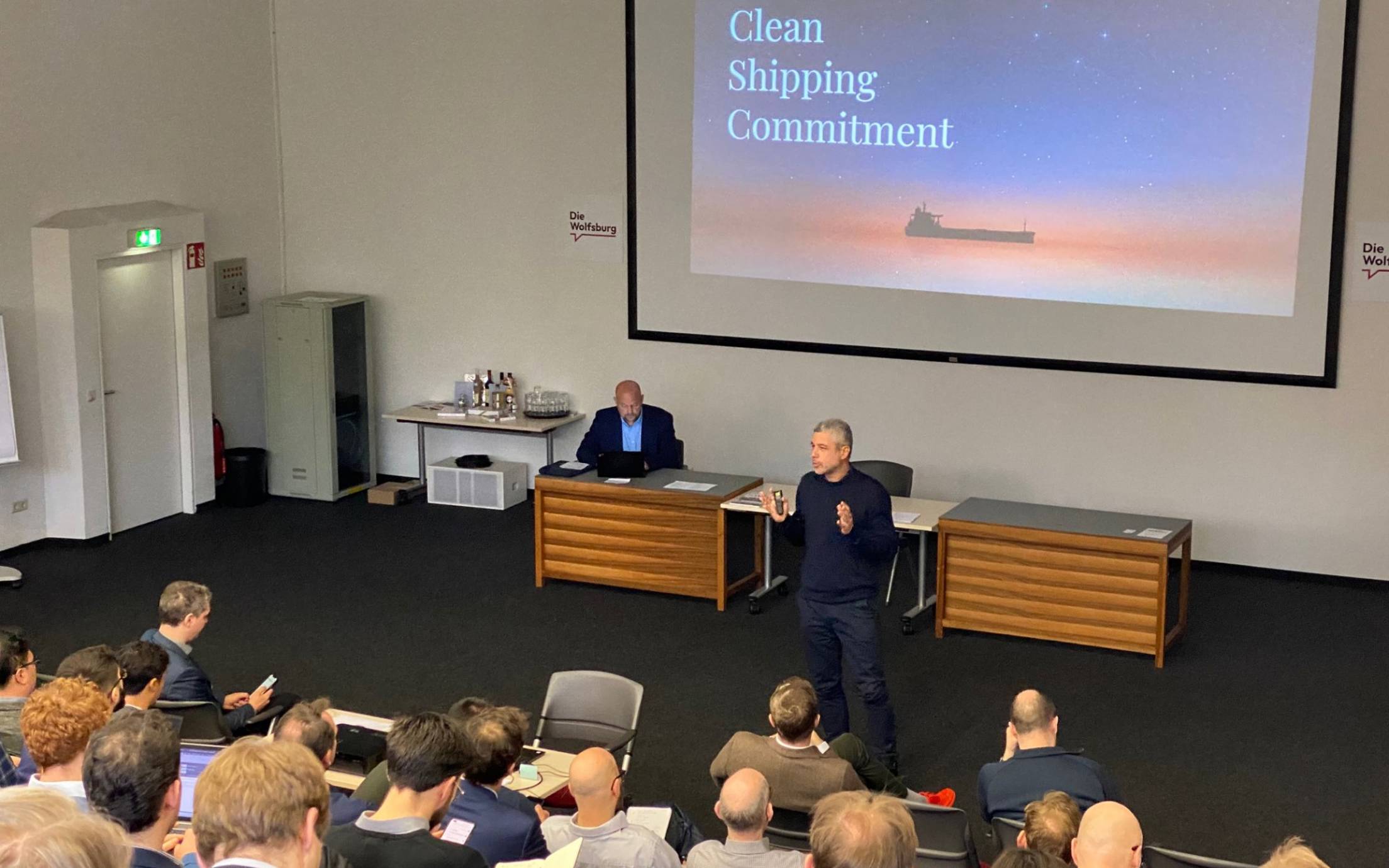Speaking at the Tradewinds ocean stage panel discussion at Nor-Shipping, Morten Fon, President and CEO of Jotun when asked where shipping is currently at when it comes to decarbonization and reducing emissions said, “We have a long way to go. Everybody is focusing on it. One thing that we have to acknowledge is that everybody can contribute because this is not a one company game. We must do this together if we are going to achieve the decarbonization goals.”
Agreeing with that sentiment, Petter Korslund, Regulatory Affairs Manager Jotun Performance Coatings added, “From a regulatory perspective, it’s encouraging to see the impact new requirements such as CII and the EU’s ETS are already having on the industry and it’s likely that we’ll face more regulatory challenges in the future. Decarbonization is vital and adopting new regulations to deliver the long-term goals of the Paris Agreement requires significant collaboration from industry and policymakers.”
Hallstein Havåg, CEO Bellona Foundation highlighted that the world is already behind schedule in cutting emissions and it is too easy to fall into the trap of looking far ahead for solutions when some such as Jotun’s are already available. Both he and Korslund made the point that although the focus of action is mainly around alternative fuels it could be some time before they are available but energy efficiency measures are already here.
Biofouling not on everyone’s agenda
Referring to the recently published results of Jotun’s Clean Shipping Survey, Fon said biofouling and its impacts are not on everyone’s agenda. “We have to work hard to increase the focus on it across the industry and find solutions together today. We cannot wait for tomorrow.”
He continued, “The hull performance systems that we are providing have been proven to deliver reduced emissions, better financial performance and also reduce the transfer of invasive species around the world. So, we can do it today but I’m afraid much more needs to be done if the industry is to combat the global biofouling issue. It’s also important to point out that regardless of what fuels will be used in the future, a clean hull will always be beneficial because operators will use less fuel and thereby save costs.”
Discussing some of the findings of the Jotun survey report Korslund said, “It’s worrying to see that two thirds of maritime professionals underestimate the impact of biofouling. There’s a definite need to increase awareness of this major issue”. According to the survey, 62% of respondents said they do not invest in reducing biofouling outside of drydocking but focus on it every 5 years. “That’s concerning as there’s a need to address biofouling regularly if shipping is to become more sustainable”, said Korslund. “On a positive note, the survey highlighted the positive impact of new CII regulations, with the majority of respondents saying they expect tackling biofouling to form part of their strategy to improve fuel efficiency, reduce GHG emissions and support environmental policies,” he added.
The survey found return on investment (ROI) is a dominant consideration for new technologies. “It seems clear from the survey that many operators, when considering new emissions technologies, they look through the lens of finance and there needs to be an incentive for them, to make sure the finance is well spent. Our message is investing in proven technologies will bring benefits today. And even if there’s not the highest ROI right now to do something to reduce your emissions, it will be in the future as regulatory and commercial demands increase,” said Korslund.
More collaboration and disruptive innovation needed
Fon also emphasised the survey highlights the lack of focus on tackling biofouling comes back to the need for innovative, disruptive thinking to create solutions to keep clean hulls today – and in the future. “Jotun’s Hull Skating Solutions is a good example of what can be done to help solve the problem. And I think it’s also a very good example of collaboration. When we developed our Hull Skater we did it together with industry partners like Kongsberg, DNV, Telenor, Semcon and Foss Tech. Our collaborative approach enables us to join forces, share our knowledge and expertise to help solve the global biofouling issue.”
All agreed that international regulation was essential for progress to be made and that it was good the IMO was reviewing its biofouling guidelines. “Today we have different practices from port to port, country to country and this is a major challenge. We hope the IMO will address this because the best solution would definitely be one regulatory framework that we can rely on – it would make life much easier”, said Fon.
Looking ahead, Havåg said, “There isn’t a silver bullet to decarbonise shipping, there’s no single solution. You have to do everything and focus on both short and long-term efforts so we’re involved in many projects, including hull cleaning practices, that are vital to address the challenges today and tomorrow.”
Fon agreed, adding, “Partnerships are very important, and the development of the Jotun Hull Skater is a good example of what can be achieved through good collaboration. We all share the benefits, there is no one winner. Going forward, we have to partner more with our ship operator customers because we have to get the solutions onboard their ships and clean hulls regularly.”
Go green by black numbers
“Our experience shows that when businesses step up and use solutions to improve their environmental footprint, then things really start to fast track,” said Havåg and added, “We really hope to see that here because there’s definitely a business case. As a foundation we often say we have to go green by black numbers. We can’t be in the red and solutions like Jotun’s definitely will help improve operational costs as well as reduce emissions so why wait?”
Korslund pointed to a practical example of collaboration and opportunity, “Bellona has started the Clean Hull Initiative, where international stakeholders, including Jotun, are working together to develop an ISO standard for in-water proactive cleaning. This work is ongoing and industry wide participation, including ports and regulators, is important to make sure the standard is accepted and adopted to the widest extent possible.”
Speaking on the sidelines of the panel talks, Morten Sten Johansen said, “Participating in industry initiatives and partnerships are important. Shipping is a global industry and it’s imperative that we take a united international approach if we are to succeed in reducing emissions, preserving fuel and protect the oceans’ biodiversity” and concluded, “Industry collaboration is also an important part of Jotun’s Clean Shipping Commitment, and a means to accelerate sustainable innovation at a time when the entire industry is grappling with new regulatory measures.”




